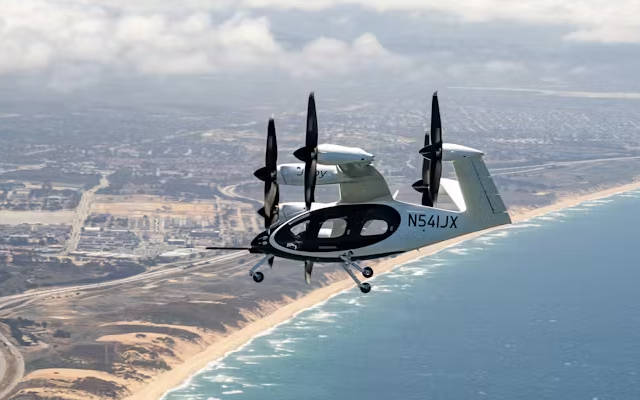In a bold and unconventional move, Toyota Motor Corp. has reportedly chosen not to invest approximately $1 billion in electric vehicle (EV) development, according to The Information. Instead, the automaker is doubling down on its partnership with Joby Aviation, a California-based company pioneering electric vertical takeoff and landing (eVTOL) aircraft. This decision marks a pivotal turn in Toyota's mobility strategy as it places a long-term bet on electric air taxis over mass-market EVs.
Why Toyota Chose Flying Cars Over Electric Cars
Toyota's investment strategy continues to reflect its skepticism toward fully committing to battery-electric vehicles. Rather than competing head-to-head with Tesla, General Motors, and a growing roster of Chinese EV makers, Toyota is sticking with its multi-path approach - supporting hybrids, hydrogen fuel cell vehicles, and combustion engines alongside emerging technologies like eVTOL.
The decision to funnel resources into Joby Aviation, rather than developing its own EV platform, suggests Toyota sees diversified mobility as a more sustainable route to innovation. It also reinforces the company's belief that EV-only strategies may not meet the global infrastructure or consumer readiness challenges in the short to medium term.
EV Market Implications: Will Toyota Be Left Behind?
While Toyota explores the skies, the ground-based EV race is accelerating. Automakers like Hyundai, Ford, and BYD are rapidly expanding EV production, capturing global market share and securing battery supply chains. By deprioritizing battery-electric investment, Toyota may risk falling behind on range, performance, and price competitiveness in key markets like the U.S., Europe, and China.
Inside the Joby Aviation Bet
Joby Aviation plans to launch commercial air taxi services by 2025, pending FAA certification. Toyota's nearly $1 billion backing includes both capital and manufacturing support, making it Joby's largest automotive partner. The technology promises zero-emission, congestion-free travel in urban areas - a futuristic solution that could redefine urban mobility, if it clears major regulatory and safety hurdles.
Short-Term Trade-Off, Long-Term Gamble
Capital allocation is a zero-sum game. Toyota's investment in aviation means fewer resources for EV R&D, battery plants, and consumer-ready electric vehicles. If flying cars prove commercially viable, Toyota could leap ahead as a leader in next-gen mobility. If not, it risks ceding ground to EV-first competitors.
Conclusion: Visionary Strategy or Strategic Misstep?
Toyota's multi-solution vision may offer flexibility across global markets, but with EV adoption accelerating and emissions regulations tightening, critics argue that the automaker can't afford to sit out the ground war. Its support for Joby is ambitious - but as EVs go mainstream, Toyota must prove it's not trading its leadership for a long shot in the sky.
Original Backlink

